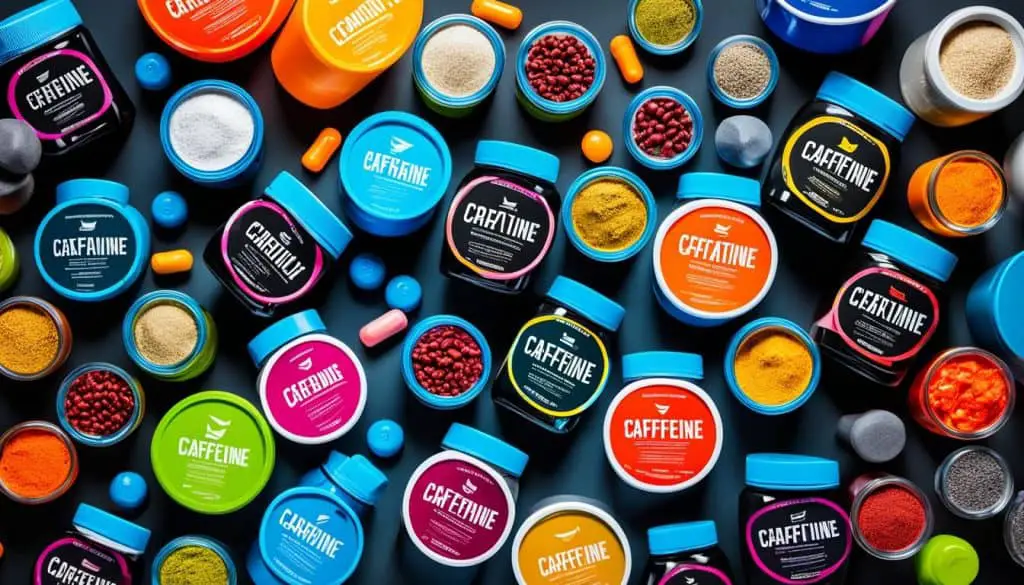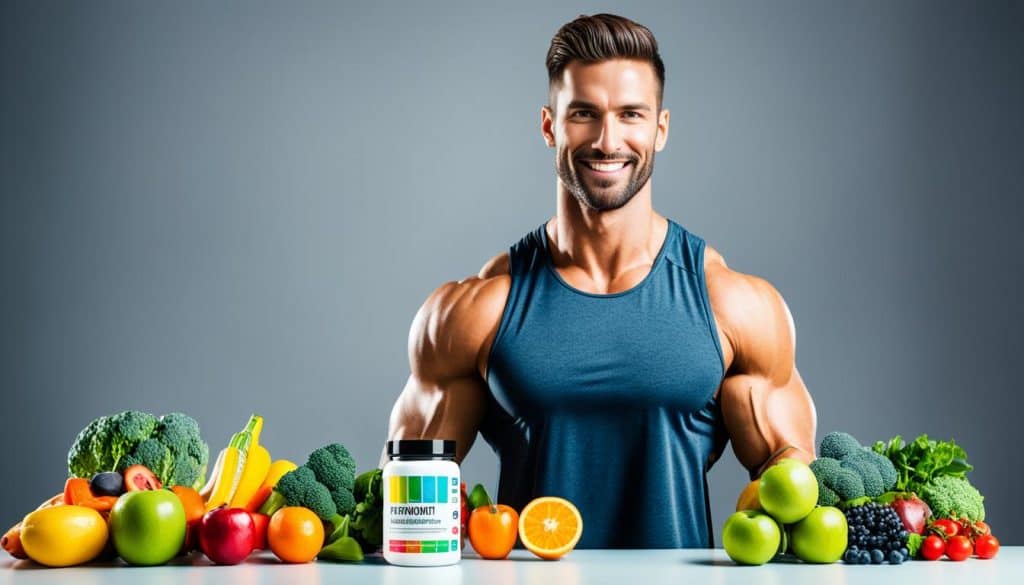When it comes to maximizing our workouts, many of us turn to pre-workout supplements for that extra boost of energy and focus. But have you ever wondered if these supplements contain calories? This is a common concern, especially for those who are watching their calorie intake or trying to lose weight. So, let’s dive into the world of pre-workout nutrition and find out the truth about their calorie content.
While not all pre-workouts contain calories, the majority of them do. However, it’s important to note that the calories in pre-workout supplements come from ingredients like amino acids, vitamins, minerals, and stimulants, which are not calorie-dense. This means that you won’t be consuming a significant amount of calories by taking a pre-workout supplement. Of course, the exact calorie content can vary depending on the brand and formulation, so it’s always a good idea to read the nutrition labels to determine the specific calorie count.
Now that we know pre-workouts do contain calories, let’s explore the common ingredients found in these supplements. This will give us a better understanding of their nutritional value and how they contribute to our workouts.
Key Takeaways:
- Most pre-workout supplements do contain calories, but they typically come from non-calorie-dense ingredients like amino acids and vitamins.
- The exact calorie content of a pre-workout supplement can vary, so it’s important to check the nutrition labels.
- Pre-workout supplements are designed to enhance energy and focus before a workout.
- Common ingredients in pre-workouts include amino acids, caffeine, creatine, electrolytes, and carbohydrates.
- Whole food alternatives can provide similar benefits to pre-workouts without the need for supplements.
Now that we have a better understanding of pre-workout nutrition and their calorie content, let’s explore in more detail the common ingredients found in pre-workout supplements. Stay tuned for the next section where we will dive into the world of pre-workouts and discover the nutrients that fuel our performance.
Continue reading: What Are Pre-Workouts and Their Common Ingredients?
What Are Pre-Workouts and Their Common Ingredients?
Pre-workout supplements are blends of nutrients and stimulants designed to naturally enhance energy, mental focus, and muscle protein synthesis before a workout. They come in various forms, such as powders, capsules, and liquid shots.
The most common ingredients found in pre-workouts include:
- Amino acids like BCAAs (branched-chain amino acids), which are essential for muscle recovery and growth.
- Caffeine, a natural stimulant that stimulates the central nervous system, improves energy, and enhances focus during workouts.
- Creatine, a compound that improves power, strength, and muscle mass, leading to enhanced athletic performance.
- Electrolytes, such as sodium, potassium, and magnesium, which help maintain fluid balance, prevent dehydration, and prevent muscle cramps.
- Carbohydrates, which provide a quick source of energy to fuel intense workouts.

These ingredients work synergistically to provide a range of benefits, including improved energy levels, increased endurance, enhanced mental focus, and accelerated muscle recovery. However, it’s important to note that the specific ingredients and their dosages can vary between different pre-workout supplements.
Does Pre-Workout Have Calories and How Many?
The calorie content in pre-workout supplements can vary depending on the brand, formulation, and serving size. Most pre-workouts contain a low amount of calories, typically ranging from zero to 200 calories per serving. The calorie content is determined by the macronutrient content, particularly carbohydrates and protein. One gram of carbohydrate and one gram of protein each provide four calories. It’s important to read the nutrition labels carefully to determine the exact calorie content of a specific pre-workout supplement.
When choosing a pre-workout supplement, consider your calorie needs and goals. If you are on a calorie-restricted diet or trying to lose weight, opt for pre-workouts with lower calorie counts. However, if you have high energy demands or are focused on muscle building, a slightly higher calorie content may be beneficial.
To help you better understand the calorie content of common pre-workout supplements, here is a table showing the approximate calorie counts of some popular brands:
| Brand | Calories per Serving |
|---|---|
| Brand A | 100 calories |
| Brand B | 150 calories |
| Brand C | 120 calories |
Keep in mind that the calorie content may vary within each brand’s product line, so it’s essential to check the label of the specific pre-workout supplement you are considering.
Understanding the calorie content in pre-workout supplements can help you make informed decisions about your nutrition and fitness goals. Whether you’re aiming to optimize performance, lose weight, or gain muscle, knowing the calorie count of your pre-workout can contribute to a well-rounded approach to your overall nutrition and exercise routine.
Factors to Consider and Alternatives to Pre-Workout Supplements
While pre-workout supplements are generally safe for healthy adults, it’s important to consider several factors before incorporating them into your fitness routine. One such factor is the presence of artificial sweeteners and sugar alcohols in pre-workouts, which may cause digestive issues for some individuals. It’s crucial to read the product labels carefully and be aware of any potential sensitivities or allergies.
Another factor to consider is your caffeine intake. Many pre-workout supplements contain caffeine, which can provide an energy boost for your workouts. However, excessive caffeine consumption can lead to side effects such as increased blood pressure and impaired sleep. It’s important to be mindful of your overall caffeine intake from various sources to avoid these potential risks.
To ensure the safety and quality of the pre-workout supplements you choose, look for products that have been third-party tested. Third-party testing is an independent evaluation conducted by a reputable organization to verify the accuracy of product claims and ensure compliance with safety standards. Opting for third-party tested supplements can provide you with added peace of mind.
While pre-workout supplements can be convenient, there are whole food alternatives that can provide similar benefits without the need for supplements. Balanced meals that include carbohydrates and protein can fuel your workouts and support muscle recovery. By focusing on a well-rounded diet and proper hydration, you can achieve optimal performance without relying solely on pre-workout supplements.
Here’s a table highlighting some whole food alternatives to pre-workout supplements:
| Whole Food Alternative | Benefits |
|---|---|
| Fruit Smoothie | Provides natural sugars for quick energy and hydration |
| Greek Yogurt with Berries | Combines protein and carbohydrates for sustained energy |
| Whole Grain Toast with Nut Butter | Offers a balance of carbs and healthy fats for energy and satiety |
| Hard-Boiled Eggs with Veggies | Delivers protein and essential nutrients for muscle repair and recovery |
Remember, it’s important to consult with a healthcare professional before starting any new supplement regimen. They can provide personalized guidance based on your individual health needs and goals.

Conclusion
After delving into the world of pre-workout supplements, it is clear that these products are not essential for overall health or performance. While ingredients like caffeine, creatine, and beta-alanine have shown potential benefits, the effectiveness of pre-workouts is not fully supported by scientific research. There is no standardized formula for these supplements, making it crucial to consider personal goals, ingredient safety, and total intake.
Instead of relying solely on pre-workout supplements, it is important to focus on overall nutrition, quality sleep, and proper hydration. These factors can provide similar benefits for exercise performance without the need for additional supplements. It is always a prudent decision to consult with a healthcare professional before starting any new supplement regimen to ensure it aligns with individual needs and goals.
While pre-workout supplements may seem tempting as a quick fix, considering the broader picture of one’s health and fitness goals is essential. Prioritizing a well-rounded approach that encompasses lifestyle factors such as nutrition, sleep, and hydration can lead to long-term success and well-being.
FAQ
Does pre-workout have calories?
Most pre-workout supplements do contain calories, but the calorie content is typically low. These calories come from ingredients like amino acids, vitamins, minerals, and stimulants.
What are pre-workouts and their common ingredients?
Pre-workouts are blends of nutrients and stimulants designed to enhance energy, mental focus, and muscle protein synthesis before a workout. Common ingredients include amino acids like BCAAs, caffeine, creatine, electrolytes, and carbohydrates.
How many calories are in pre-workout supplements?
The calorie content in pre-workout supplements can vary, but most contain a low amount of calories, typically ranging from zero to 200 calories per serving. It’s important to read the nutrition labels to determine the exact calorie content of a specific pre-workout supplement.
What factors should I consider and are there alternatives to pre-workout supplements?
Factors to consider include potential digestive issues from artificial sweeteners and sugar alcohols, as well as the potential side effects of excessive caffeine intake. It’s important to choose pre-workouts that have been third-party tested for safety and quality. Whole food alternatives like balanced meals containing carbs and protein can provide similar benefits to pre-workouts.
Are pre-workout supplements necessary for health and performance?
Pre-workout supplements are not essential for health or performance, and their effectiveness is not fully supported by research. It’s important to consider personal goals, ingredient safety, and overall intake of pre-workout supplements. Focusing on nutrition, sleep, and hydration can provide similar benefits for exercise performance. Consulting with a healthcare professional before starting any new supplement regimen is always recommended.
Source Links
- https://www.garagegymreviews.com/does-pre-workout-have-calories
- https://torokhtiy.com/blogs/guides/how-many-calories-in-pre-workout
- https://www.healthline.com/nutrition/pre-workout-supplements
Hey there, I’m Luke, and I’ve been immersed in the fitness world since 2007. From gym floors to running my own personal training business, I’ve seen it all. My journey led me to study Sports Science at university, where I deepened my understanding of the science behind exercise.
One thing that truly lights my fire? High-Intensity Interval Training (HIIT). It’s not just a workout; it’s a game-changer. I’ve used HIIT to help countless men and women shed weight and transform their lives for the better.
Through my personal training business, I’ve witnessed the incredible impact of HIIT on both physical and mental well-being. It’s not just about getting fitter; it’s about feeling stronger, more confident, and more resilient.
Join me on this journey to a healthier, happier you. Let’s crush those goals together!